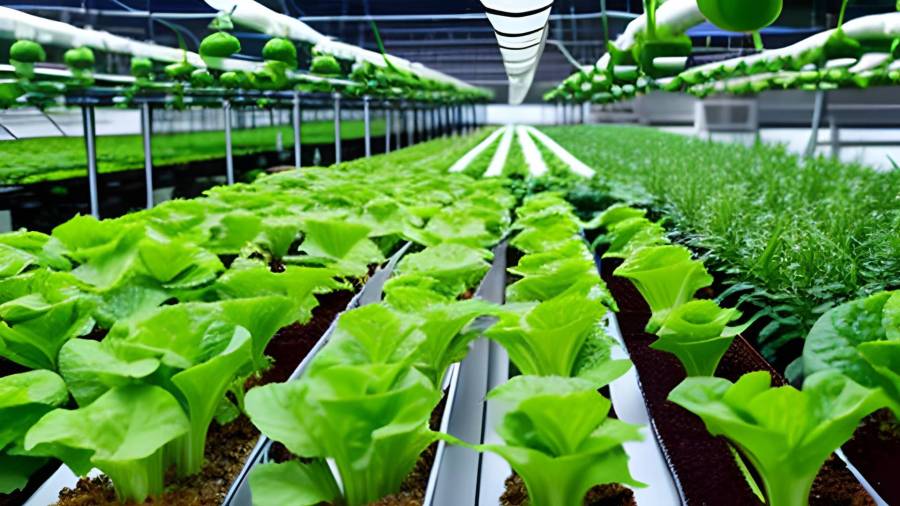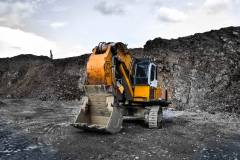Growing attention has been paid in recent years to the need for sustainable and novel approaches to agriculture’s age-old problems. Hydro-tech farms are one approach that is gaining popularity as a means to this problem. These farms use state-of-the-art hydroponic systems and cutting-edge technology to grow their produce in a sustainable and effective manner. This article will go into hydro-tech farming, discussing its history, current state, and potential future applications and effects on the agricultural industry.
One way to cultivate plants without using soil is through hydro-tech farming, often known as hydroponics. In hydroponics, plants are grown in a water solution that is rich in nutrients. This gives the plants easy access to the minerals and elements they need to thrive. Tilling, a common farming activity that can cause soil erosion and nutrient loss, is unnecessary with this method. Hydroponic farms are able to increase crop yields while decreasing water and pesticide usage by providing plants with a controlled atmosphere and optimal conditions.
Hydro-tech farms are built to make the most efficient use of water and other resources. By cultivating plants in a greenhouse, growers are able to provide optimal conditions for plant growth by managing environmental variables such as temperature, humidity, and light intensity. Water is conserved with this precision farming method by being reused inside the system. In addition to being better for the environment, hydroponic systems use significantly less fertilizer and pesticide than conventional farms.
The capacity to grow crops throughout the year is a major benefit of hydro-tech farming. Seasonal shifts and inclement weather are common constraints on conventional farming. In contrast, hydroponic systems offer a climate-controlled setting in which crops can be grown in any season. This guarantees a year-round supply of fresh vegetables while decreasing the need for imports and the associated transportation costs.
When faced with the problem of scarce farmland, hydro-tech farming provides a novel answer. Hydroponic systems make efficient use of space by employing vertical farming methods. The vertical arrangement of plants makes it possible to grow several different types of food in the same space. This type of vertical integration not only improves crop yields but also decreases the amount of land required. This allows for the establishment of hydro-tech farms in urban areas, which brings agriculture closer to consumers and lessens the environmental impact of food delivery.
The widespread adoption of hydrotech farming has fundamentally altered the agricultural and food production systems. Hydroponics is having a profound effect in several fields, so let’s look at a few of them.
Urban farming has been made possible by the proliferation of hydrotech farms. As the world’s population and rate of urbanization rise, so does the demand for environmentally responsible methods of urban food production. Hydroponic systems are a great option since they can be set up in confined areas and under strict environmental control. Fresh, locally grown produce can be made available to city dwellers through the use of urban hydroponic farms, which can be incorporated into buildings, rooftops, or even converted industrial locations.
Growing plants in indoor facilities where environmental conditions are carefully monitored and regulated is known as controlled environment agriculture (CEA). Hydroponics is essential in CEA because it allows farmers to control the environmental factors that affect plant growth. In areas with harsh weather or scarce farmland, this technology can make a huge difference. Hydro-tech farms can guarantee constant crop yields and limit the chance of crop failures due to external influences by providing a controlled environment.
The term “vertical farming” describes a method of farming in which crops are stacked or layered vertically, typically in urban settings. Vertical farming relies heavily on hydroponics, a technology that allows plants to thrive without soil. Hydro-tech farms are an economical and space-saving solution because they maximize crop yields per square meter by making vertical use of available space. Farming can be brought closer to urban populations and the carbon footprint associated with food transportation can be reduced by incorporating vertical farms into high-rise buildings, refurbished warehouses, or purpose-built structures.
In comparison to conventional agricultural methods, hydroponics are more environmentally friendly and productive. Hydroponic systems use technology and innovation to allow for year-round food production, decreased resource use, and optimal use of available space. Hydro-tech farms have the potential to play an important role in the future of food security, environmental protection, and agricultural sustainability. A more robust and long-lasting food system is possible with the help of this technical development.
First reported on CBS News


















